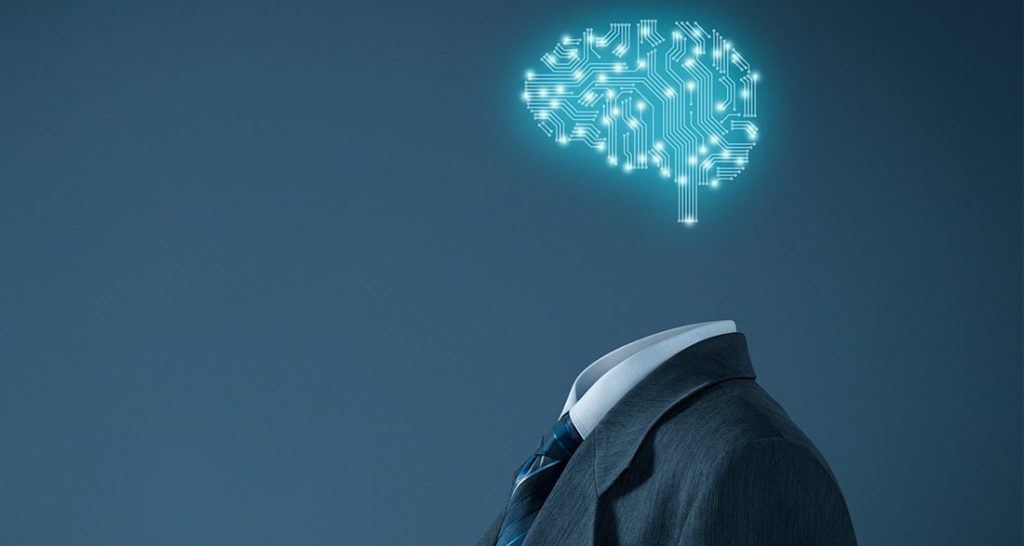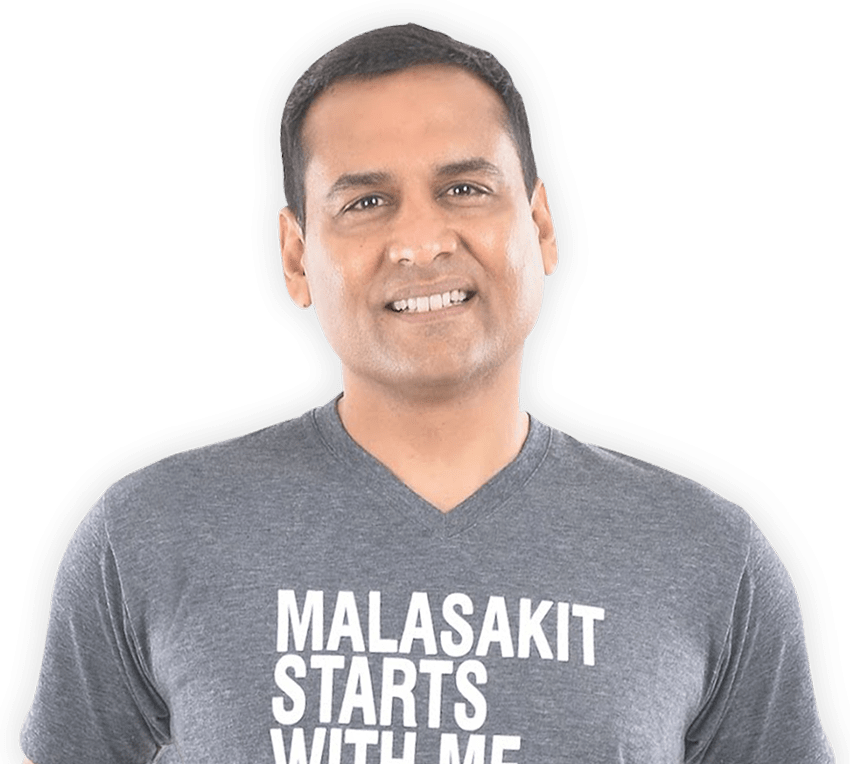(An excerpt from my upcoming book, “Futureproof your career and company”)
What is the future of your work? Will AI take your job?
Most of us don’t think about this urgent and important question. Why? Not because we ignore it but because AI is sneaky. It’s tiptoeing into our jobs so stealthily that we don’t even realize the threat that it may pose for our careers.
Mark Weiser, a computer pioneer, once famously said “The most profound technologies are those that disappear. They weave themselves into the fabric of everyday life until they are indistinguishable from it.”
AI is profound.
Just like electricity, it permeates throughout our lives and it’s so deeply embedded that we don’t even notice it.
What’s our relationship status with this profound technology? It’s complicated.
It’s a love-hate relationship.
As consumers, we love the endless manifestations of AI enriching every part of our lives.
For example, we love the fact that AI unlocks our smartphone using Face ID, curates “recommended for you” movies on Netflix, choreographs our commute to work with recommended route and travel time, blocks our credit cards to prevent fraud, categorizes our Gmail box and provides us with smart and contextual replies, just to name a few.
But, as employees and employers, we hate the very thought that AI can potentially make us irrelevant. We become uneasy and anxious about the very thought that it has the potential to significantly alter or completely eliminate our jobs.
The recent media headlines are adding to this anxiety by featuring multiple studies about how AI will impact our jobs in years to come.
The interest about this topic peaked with a study published in 2013 by researchers at Oxford University. It estimated that around 47% of the total US employment had a high risk of automation over the following two decades.
In 2017, McKinsey came out with its own forecast with a twist. It predicted that 50% of current work activities (not jobs) are technically automatable by adapting currently demonstrated technologies.
In 2019, Brookings Institution published a study which analyzed an overlap between more than 16,000 AI related patents and more than 800 job descriptions. It was the first study that concluded that highly educated, well paid workers may be heavily affected by the spread of AI. This was in direct contrast with almost all other studies that predicted that AI will impact the low wage, low skilled workers the most.
Each of these studies used a different methodology and came to a different conclusion as to how many jobs will be impacted, what kinds of jobs will be impacted and by when the jobs will be impacted.
But they all pointed to the same common-sense insight.
Where AI shines…
If any task you do as a part of your job is routine, boring and predictable, AI can do it.
If it has a well-defined objective and there is a large set of historical data to train AI with, AI can do it.
If it involves basic cognitive functions such as learning, reasoning, problem-solving, and predicting, AI can do it.
Over the years, as we witnessed increased use of robotics in manufacturing plants, we accepted the fact that AI and robotics can excel at replacing our hands and our bodies eliminating thousands of blue-collar jobs.
But, with advances in various AI disciplines such as deep learning and computer vision in the recent past, AI has started to replace not just our hands and bodies but also our heads.
AI is color blind. It doesn’t discriminate against blue collar or white-collar jobs. It infiltrates any-collar job where it can do it better, faster, smarter and cheaper than we can.
One of the best ways to illustrate and expand on this important point is by reviewing real-life examples of how AI is currently impacting the jobs and activities we do in a variety of industries.
Food industry
In 2019, McDonald’s acquired two companies. Two AI startups!
Apprente offers a speech based AI that converts “speech into meaning” versus “speech into text”. Why did McDonald buy this company? To capture your drive-through order. We all know how annoying it is to have to repeat our order. Well, now we have one less thing to be annoyed about. Apprente accurately captures your order the very first time regardless of your accent and background noise.
Dynamic Yield provides Amazon-style personalized experience in a drive-thru setting. It tailors the digital drive thru menu to weather, current restaurant traffic, and trending items. It also recommends additional items based on what you have already chosen. A little more sophisticated than “Would you like fries with that?”.
AI is even helping with basic food preparations. For example, Flippy, an AI powered kitchen assistant from Miso Robotics is already flipping burgers and frying French fries at a number of burger joints in the US. Unlike a traditional robot, it’s connected to Miso AI cloud platform and continuously improves its performance and skills over time.
The best part about Flippy? 100,000 hours of continuous uptime. (Yup, goodluck getting your photo on the “Employee of the Month” board!)
Hotel industry
It’s touted as “The Hotel of the Future”. When you arrive at the FlyZoo hotel in Hangzhou, China, you hardly see any staff in the lobby. Or even during your entire stay.
The hotel allows you to make reservations and settle bills using a mobile app. When you arrive at the hotel, you check in using self-service kiosks and enter your room using face recognition technology.
Once in the room, a voice activated assistant is at your service. It will change room temperature, close the curtains, adjust the lighting and order room service. And guess who delivers your food to your room? A robot.
If you had a long travel day and head to the lobby bar to have a drink, there is no bartender to chitchat with. A robot behind the counter is mixing your cocktails.
Customer Service industry
The omnipresent Chatbots! But they are just a very small part of how AI is revolutionizing the industry.
Companies like Avaamo offer conversational IVR which not only understands the words the customer is saying but also the meaning, nuance and the intent behind the question.
There is no need for you to press any button during your IVR experience, as the natural language processing algorithm automatically understands what you are saying and responds accordingly. During the call, it offers additional information to customers via digital channels such as SMS or mobile web hoping to resolve the customer issue in lower cost and more interactive channels. The goal is to resolve as many customer issues without having to engage a live agent.
But even when a call ends up with a live agent, AI plays a significant role by augmenting the agent’s performance by updating customer records, by providing highly relevant data points in real time so agents can answer customer queries and by providing personalized solutions to the customer based on their purchase history and past support requests.
Legal industry
If you think highly specialized fields such as law would be immune to AI, you are in for a surprise.
Companies like LawGeex are developing an AI driven process that can review proposed legal contracts, analyze them using natural language processing and determine which portions of the contracts are acceptable or not.
Legal research is arguably the most cumbersome and time-consuming part of a law firm. Companies like Casetext are automating this process. They deploy natural language processing to truly understand the legal opinion’s actual meaning. They are significantly reducing the need for junior lawyers or paralegals. Over 4500 US law firms are already using this service.
There are plenty of other examples. But you get the drift.
To summarize, if any of your activity you do as a part of your job that is boring, repetitive and predictable (such as flipping burgers, checking in guests at hotel, answering basic customer queries, and stocking shelves), AI can do it.
If it has a well-defined objective and there is a large set of historical data to train AI with (such as reading Mammograms, taking drive-through orders), AI can do it.
If it involves basic cognitive functions such as learning, reasoning, problem-solving, and predicting (such as offering a personalized drive-thru menu, virtual nurse assistant providing real-time alerts to a doctor, and conducting legal contract reviews), AI can do it.
Where we shine…
So then, what about us?
What jobs would be left for us to do? The better question to ask is what tasks (that you do within your job) will be left for you to do?
The good news is (at least for the next 10 years), there are a plenty of tasks where we will have an inherent advantage against AI.
AI can match our body (and to a degree our minds). But we have the advantage of having a heart and a conscience.
Both humans and machines can be goal driven. But, only humans know how to lead and inspire others to collectively achieve the goal.
Both humans and machines can diagnose diseases. But only humans know how to break the news to the patient with empathy.
Both humans and machines know how to excel in predictable, repetitive environment.
But only humans know how to navigate through unexpected, unprecedented, unpredictable situations (such as COVID-19).
Both humans and machines can follow well-defined, rule-based environment to make a product. But only human can create something completely new, something original in an unstructured, undefined environment.
So, will AI take your job over the next 10 years?
Not if you use your creativity, your intuition, your ability to think and act strategically and holistically, your ability to be resourceful and adaptable in unexpected situations, your ability to connect and influence, your ability to lead and inspire others, your ability to empathize and to feel others’ pain or joy, and your ability to manifest love.
Wishing you a flourishing future,
Maulik
PS: Would like to know more about how to futureproof your career and company in an era of AI, digital natives, and the gig economy? Buy the book here . If you liked the blog, please share it with your friends you think should read it as well. I’d appreciate it.




